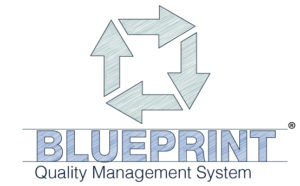Anyone with experience in a healthcare business office can understand the impact of slow commercial payers as well as unpaid or denied claims within the revenue cycle. Rebilling, followup, and appeals take time and energy away from an already-taxed business office. While you may know State Collection Service as a firm specializing in handling patient self-pay balances (both in the early out and bad debt settings), what you may not know is that we have invested in the people and technology to address issues centered around commercial payers and claims to further assist today’s healthcare business office.
A recent investment in Artiva Healthcare enables us to not only phone the payer in an effective manner, but also allows us to submit an electronic inquiry (276) and the status (277). This technology also enables us to track denials and report back to our clients with the results. Denial management is typically associated with “denials after the fact.” A denial may be the result of a lower-than-expected reimbursement or no insurance payment at all. Denials may also be the result of various other factors including incomplete or inaccurate insurance information, lack of pre-certification or authorization, diagnoses and procedure coding errors or omissions, or past filing limits submission of claims. Even a lack of meeting medical necessity can result in a denial.
To truly minimize denials, rather than just reacting to them, the revenue cycle leader must understand why claims are denied. By utilizing the information found on the 835 to trend and track the denials at the time of payment posting we are able to effectively report back to you, the client. Denials may be tracked by category and subcategory to determine the nature of the denial – Clinical or Technical. Codes should then be tracked at the type of CARC code (Claim Adjustment Reason Code) and further refined to be sorted by payer, provider, and biller.
By drilling this far into the denials, you can establish trends. As trends are identified, we can work to determine the root cause of that denial. This information should then be shared throughout the organization to establish processes and training protocols to avoid these denials in the future. Reimbursements generated from successful appeals can be tracked to demonstrate the value of monitoring and working denials. Being aware of the type of denials by payer enables you to take the appropriate action and potentially avoid similar denials going forward.
Sixty-five years of success have taught us that our services must continue to evolve as the needs of our clients grow. Helping manage commercial claims for our healthcare partners is just one of many revenue cycle services we offer. If you would like to receive more information on how we can help with your commercial claims – or any other aspect of your revenue cycle – contact us at (800) 477-7474 or sales@stcol.com today!
About State Collection Service, Inc.
Since 1949, State Collection Service has provided quality collection service to countless healthcare organizations.
Through experience and innovation, State Collection Service has grown to become a tremendously credible and nationally-recognized collection agency offering services from pre-registration to bad debt. It is upon the basis of ethical behavior and a dedication to integrity that each State Collection Service employee works to uphold the company’s vision – Partnerships for a Lifetime.
*This article first appeared in “A State Collection Service, Inc. Newsletter Volume 20, Issue 4, Fourth Quarter 2014”















